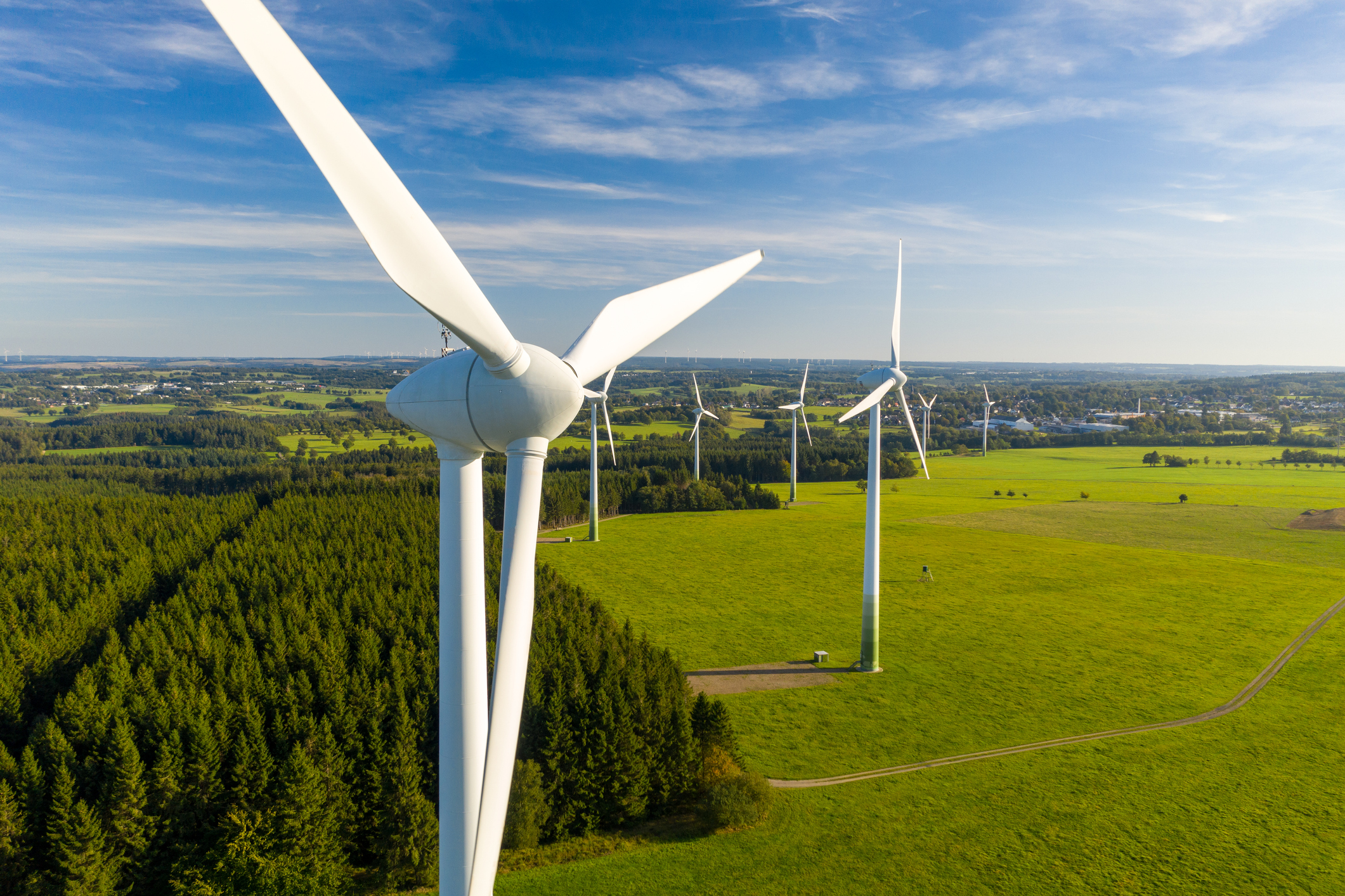Clean Energy in New Jersey [2025 Guide]

Jan 1, 2025
As the US moves to cleaner, more sustainable energy sources, New Jersey has stood out as a particularly decisive and ambitious state in its own transition, having committed to achieving 100% clean energy by 2035. So what does this mean for residents of New Jersey who are eager to go green? Let’s break down what you need to know about clean energy in New Jersey.
Benefits of Clean Energy in New Jersey
Clean energy's benefits extend beyond environmental preservation, particularly in New Jersey. The transition towards clean energy is expected to usher in considerable economic advantages, with a projected creation of 27,000 new jobs and an addition of $4.8 billion to the state's economy by 2030. Clean energy also offers the advantage of energy independence, reducing reliance on fossil fuel imports and helping to insulate the state from fluctuations in global oil and gas prices. Moreover, the renewable sector can stimulate local economies through job creation in areas like installation, maintenance, and manufacturing of renewable energy technologies.
New Jersey Energy Mix: How Much is Renewable?
As of 2021, clean energy sources like wind and solar account for 2% of New Jersey's net electricity generation, according to the Energy Information Administration (EIA). However, the state has been making progress in recent years to expand renewable energy. Its most notable achievement is the doubling of solar capacity, anticipated by 2026 thanks to the Successor Solar Incentive Program. Moreover, offshore wind projects are set to add significantly to the renewable energy mix, with a target of 7.5 gigawatts by 2035. These efforts are part of a broader objective to replace traditional, environmentally harmful energy sources with cleaner, renewable sources.
The state's renewable energy strategy also recognizes the crucial role of energy storage in ensuring a reliable supply of clean energy. By aiming for 2,000 megawatts of installed energy storage by 2030, New Jersey is setting one of the most ambitious storage targets in the nation. This strategy underlines the state's commitment to not just producing clean energy but also effectively storing and distributing it to meet the residents' needs.

New Jersey Clean Energy Goals
New Jersey aims to achieve 100% clean energy by 2035. This ambitious target, backed by concrete strategies, positions the state as a national leader in the fight against climate change.
The roadmap towards this goal includes various initiatives. These comprise the implementation of zero-carbon-emission heating and cooling systems in numerous homes and commercial properties, planning for the future of natural gas utility, and allocating funds to facilitate the adoption of electric vehicles, especially medium and heavy-duty ones. The state also aims to increase resilience against flooding through NJ PACT REAL rules. These steps are part of a broader endeavor to build a sustainable, eco-friendly, and stronger New Jersey.
Choose clean energy in 2 minutes

Average Electric Bill in New Jersey
New Jersey's push towards clean energy is not only an environmental necessity but also a practical consideration for its residents. The state’s average electricity bill has been traditionally higher than the national average, a concern that renewable energy can alleviate—as of August 2024, EnergySage estimates the average NJ resident’s electric bill at $260 per month or 20 cents per kilowatt hour (kWh). Transitioning to renewable energy sources can stabilize energy costs, shielding consumers from the volatile prices of fossil fuels. As the state expands its renewable energy capacity, residents can look forward to a future of sustainable and cost-effective energy solutions.
New Jersey Clean Energy Incentives
New Jersey has established a variety of incentives for clean energy adoption. A significant part of the state's green energy initiative is its Clean Energy Program. This program not only aims to boost the state's renewable energy output but also offers Solar Renewable Energy Certificates (SRECs). These certificates serve as a form of monetary encouragement for solar energy developments. Each SREC represents one megawatt-hour (MWh) of generated solar electricity, which the solar system owner can then sell or trade, yielding additional revenue for solar energy contributors.
In addition, New Jersey provides property tax exemptions for clean energy installations. This means that residential and commercial property owners who implement renewable energy systems are exempted from paying increased property taxes based on the enhanced value attributable to these installations.
At the national level, the federal Investment Tax Credit (ITC) provides substantial incentives for solar energy. The ITC grants homeowners and businesses the opportunity to deduct a percentage of the costs associated with installing a solar system from their federal taxes. This tax credit serves to further decrease the overall expenses linked with the installation of solar systems.
How You Can Choose Clean Energy in New Jersey
CleanChoice Energy is a clean energy supplier offering services to customers in New Jersey. By choosing CleanChoice Energy as their electricity supplier, customers in Atlantic City Electric, JCP&L, and PSEG territories in New Jersey can play a role in reducing our collective dependence on traditional, non-renewable energy sources. CleanChoice Energy is dedicated to making the switch to clean, pollution-free energy easy and accessible for customers in New Jersey. Learn more about how easy it is to choose cleaner energy today and be a part of New Jersey's green revolution.
Stay in the know
Learn about clean energy, climate tips, special offers, and more
Success! You’ve been added to our mailing list.
¹Typical default utility energy mix for customers in NJ. Source: www.eia.gov, 2021 "Electric power industry generation by primary energy source." CleanChoice Energy has high standards for defining "clean" energy. While nuclear and hydro do not emit greenhouse gasses, generation from these sources have other negative environmental consequences.